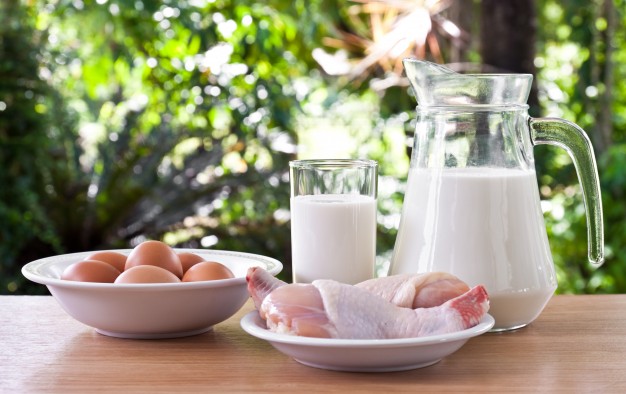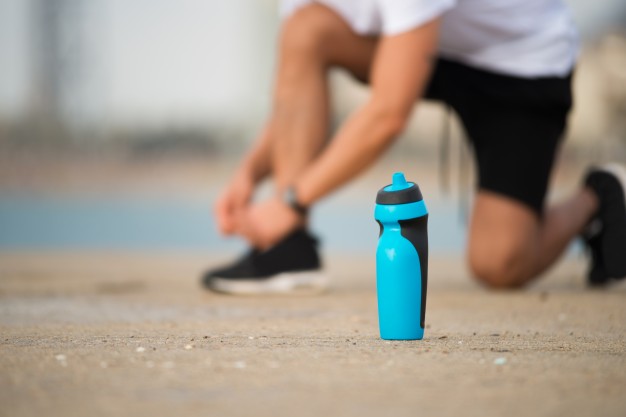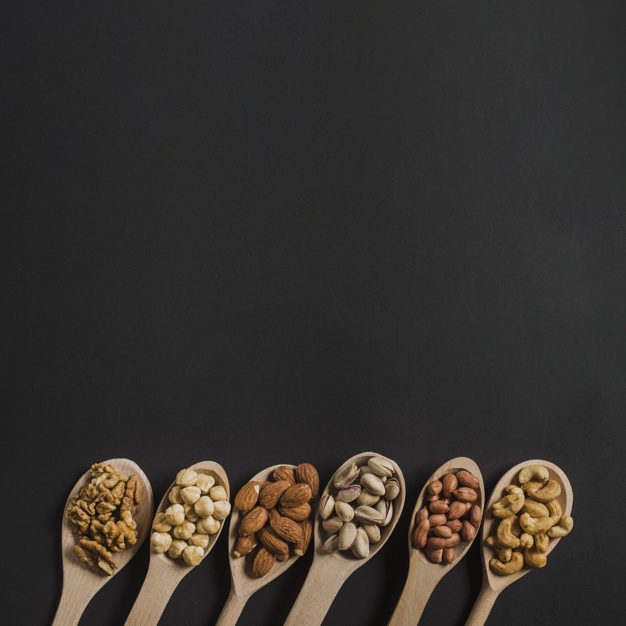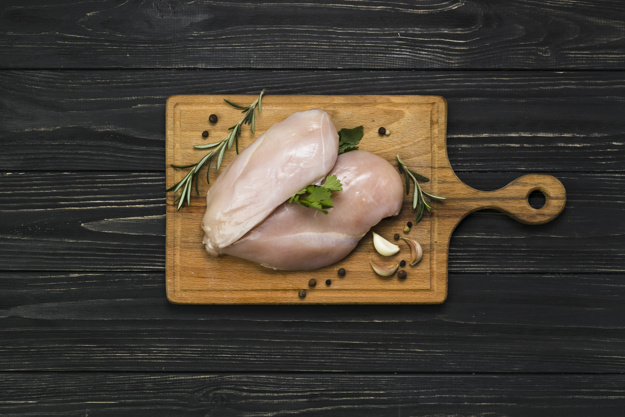How Much Protein Do I Need To Build Muscle Male?
Along with carbohydrates, protein is one of the essential nutritional elements a human organism extracts from food. It is a carcass building component for our muscles.
It is important to understand that protein is a complex compound that consists of amino acids. Despite the fact that natural products contain a big variety of different amino acids, the human body employs only 22 particular kinds in varying percentages. Considering that virtually all existing products include different amounts and sets of amino acids, it is crucial to form an individual, balanced diet. Thoughtlessly consuming protein-rich foods just will not do any good.

We will tell you more about the importance of protein in one’s daily diet, as well as about its role in building a beautiful, healthy body.
Why Your Body Needs Protein
As you have already found out, proteins serve a structural purpose in the human organism, forming kind of a carcass that supports the shape of your cells. It also plays a key part in the cell signaling systems during immune responses. An organism requires protein consumption especially when it grows and when its human ‘owner’ leads an active, sports-focused life.
Best Types of Protein
What protein do you need to build muscle?
Generally speaking, this crucial element can be subdivided into two groups: of animal and of non-animal origin. Despite many experts highlighting that these types can be replaced by each other, the animal protein is more ‘akin’ to the human organism. That is why it is better absorbed (this, however, does not mean that you should fully exclude the plant protein from your diet).
On the other hand, it can be quite difficult for professional sportsmen to consume as much protein as exhaustive daily pieces of training require. That is exactly why an increasing number of people active in bodybuilding, fitness, and other kinds of intense sports prefer to get the needed protein not only from food but also from the special dissoluble protein powders. So, to the point we started with, what kind of protein do you need to build muscle?
- Whey protein. The primary source of this type is milk whey. Its consumption is most important to take place after intensive exercises, as it stimulates anabolic processes in an organism. Up to date, it is among the most affordable, yet effectively enhancing muscle bulk types of protein, which, on top of everything else, does not provoke high levels of stress for the gastroenteric tract.
- Casein. It is a hydrolyzed sort of protein extracted from curds. It is an essential component in sportsmen nutrition. It is absorbed quite slowly while provoking pretty high amounts of stress for the gastroenteric tract (intestinal obstruction may be caused by overconsumption). Properly ingested (in the evening time or before going to bed), it can slow down catabolic processes, helping sportsmen gain muscle mass. This one is quite an expensive type of protein.
- Milk protein. This one is also slowly absorbed by the human body, so various gastroenteric tract dysfunctions are possible when it is improperly ingested. This is a cheaper alternative to the whey protein, which is, nevertheless, much less effective in terms of the muscle bulk support. If we regard the milk protein with the purpose of answering the question ‘How much protein do you need to build muscle mass?’, its high lactose contents restrict the healthy consumption of this type of element to 60 grams per day.
- Soybean isolates. A plant-originated kind of protein, which requires the additional input of amino acids from the main course food. It is mostly employed by vegetarian and vegan athletes. It is utterly slowly absorbed by an organism, which calls for various possible GT tract issues. Unfortunately, it has quite a doubtful value for intensely training athletes. Notice also that many beginner sportsmen are afraid to ingest soybean isolates due to soy being the source of phytoestrogen. Nevertheless, all the components that can cause a hormonal disbalance in the organism are discarded during the extraction of the isolates, which makes such awareness a bit excessive.
- Ovalbumin (egg albumen or egg white). Egg whites are the most highly effective. They contain a full set of amino acids necessary for growing muscle mass, being pretty expensive on the retail market at that. It is pretty heavy for the GT tract, so it is crucial to balance it carefully.
- Protein Hydrolysates. This is the more affordable alternative to animal-originated proteins. Depending on the quality of raw materials, the GT tract stress-load can vary from medium to high. A few years ago, Hydrolysates were considered to be the most expensive source of protein. Later on, however, it was figured out that due to the full protein hydration, it is impossible to define its initial raw products, while certain amino acids tend to lose some initial consistent parts due to the hydration. This fact almost completely eliminated their value for those who preferred to consume them among others.
In mass retail, there are also multicomponent mixes that include a full set of amino acids required by sportsmen. This is, probably, the most optimal option for people that form their diet individually (there is no necessity to calculate the daily dosage).
How Much Protein Do You Need?
So, how much protein do I need to gain muscle mass? The perfect formula is as follows:
0.8 – 1.5 grams of pure protein for 1 pound of weight (depending on the level of physical stress-loads and state of health).
How Much Protein Do You Need per Day?
Now, let’s consider this: why do certain people, even those who most probably exceed the proper daily dosage of protein for their body, still cannot gain muscle bulk as rapidly as they wish?

As a matter of fact, protein is absorbed differently by different organisms. Some consume whole 100% of the element, while others cannot handle even the half of it. The solution here is to focus on your individual progress, work on your diet, and, surely, keep in mind that an excessive protein consumption may cause stomach issues.
How Much Protein Do You Need to Lose Fat and Gain Muscle
How much protein do I need a day to build muscle? 1-1,5 grams of the element per 1 pound of body weight is an average dosage for an adult male that strives to lose all the stored fat and gain muscles.
Calculations
According to the above-mentioned dosages, a male that weighs about 175 lbs needs to consume 175 – 260 grams of pure protein to build muscle per kg.
Protein Timing
Now, let’s figure out how much protein one needs in a day to gain muscle (both in the course of common meals and in the form of powder mixes):
- 10-20 grams of the substance must be consumed per course (consider also a particular manufacturer’s guidance);
- it should be ingested 6-8 times a day (can be increased up to 10 times a day);
- protein must be consumed along with carbohydrates (except during the evening course of food);
- your protein’s quality is crucial (only animal sources-origin proteins in the boiled/baked form or the specialized sportive nutrition from a well tried-&-tested manufacturer).
Negative Effects of a Large Amount of Protein
An excessive amount of protein in a body can lead to quite negative effects on the liver and kidneys. Moreover, regular consumption of animal products in large amounts can significantly increase the cholesterol level in one’s blood.
Protein and Calories
And now for the cherry on top for those who decided to go for a protein diet. Expert nutritionists believe that an organism requires 30% more energy to absorb proteins, as opposed to absorbing carbohydrates and fat. This means that the factual calorific capacity of proteins can be reduced to 3 kcal per 1 g. Furthermore, an organism starts to use its fat storages when the time comes to restore the energy expenses. This means that by replacing proteins with ‘fast carbohydrates’, you lose weight. Thus, with increased contents of proteins in one’s nutrition, fat storage expenditures also increase by 30-40%.
Best Sources of Protein
Animal products (such as meat, eggs, dairy products) contain all the necessary amino acids to some or another extent. In turn, protein-containing plant products feature only fractions of the nine crucial acids.

This indicates that animal protein cannot be fully replaced by the plant kind (one cannot exchange meat for the regular intake of nuts & soy, staying healthy at that).
High Protein Foods
In order to enhance our inspection of the initial question ‘How much protein do I need to build muscle as a male?’, let’s figure out which products are the richest in protein.
- White and red meat. Our list of foods that contain enough protein needed a day to gain muscle starts with chicken fillet and beef. As you may know, those are practically the foundation of an athletic diet. Despite the fact that beef is much fatter than chicken, this kind of meat virtually does not contain carbohydrates and has low-fat contents. Having ingested your standard amount of meat during one course of the meal, you can get a sufficient daily dose of proteins. If we are talking about fatter sorts of meat (like pork), you should absolutely cease consuming such foods if you are planning on losing weight.
- Fish. Another rich with proteins food that also features fats that are good for your skin. River fish and tuna are known to have the lowest fat contents (the latter features an unprecedented amount of proteins for a kind of fish and practically does not contain fat). Additionally, fish makes your GT tract work smoothly and properly (as opposed to the heavy red meat).
- Eggs. Egg whites are an excellent source of protein needed to lose fat and gain muscle. Keep in mind, however, that a chicken egg can be a quite harmful allergen and can boost your level of cholesterol when overly consumed. It is best to eat no more than 1-2 eggs with yolk (which is the primary source of excessive cholesterol).
- Soy. Products based on soy provide plant proteins that are great for vegetarians. On the other hand, as we have already mentioned, soy is also a significant source of phytoestrogen, so be careful when ingesting it in the ‘clear form’ (not in the isolate form).
- Curd. A definite advantage of curd is that its fatness can be regulated depending on the diet and particular organism demands. In all other aspects, it is pure protein. Keep in mind the fact that fat-free curd would not be the best choice for those into sportive activities (all the protein it contains cannot be absorbed by an organism due to the lack of fat).
- Cheese. Despite rich protein contents, cheese is still a fatty product. So if you plan to lose a couple of kgs, restrict your consumption of this product.
- Beans. Along with soy, it is another great protein-rich plant product. It features loads of vitamins, fiber, as well as a number of microelements that positively affect the state of one’s body in general. On the other hand, beans are not the best bet when it comes to the diet of people with the GT tract problems.
- Buckwheat. There are lots of protein for gaining muscle in this gift of nature. Generally, buckwheat is the richest in protein type of fixing. There are many kinds of a diet based on buckwheat. It is eaten regularly a lot by athletes and people that cannot handle complex carbohydrates.
Conclusion

Summarizing our research called to answer the ‘How many grams of protein do I need a day to build muscle?’ – being among the essential elements of a human’s daily diet, protein must be consumed responsibly, especially, if you want to lose weight and/or gain some muscles. We hope that our feature helps you to figure out which type of proteins is the most reasonable for you in particular and answer the ultimate question – how much protein does a male need to build muscle.

